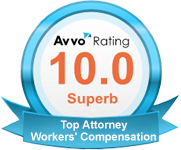Minnesota Retaliation Lawyers
As an employee in Minnesota, you are entitled to fair treatment at work, and you have rights under both Minnesota state law and federal law. If you have been terminated, demoted, or are facing negative consequences at work, you should know your options. Indeed, if you have experienced an adverse action by your employer because you reported discrimination, blew the whistle on your employer, applied for workers’ compensation benefits, used family leave or medical leave, or otherwise exercised your rights as an employee, your employer broke the law.
If you have experienced retaliation from your employer, a skilled employment law attorney can help. The lawyers at Heimerl & Lammers advocate for employees like you and have a wealth of experience protecting employee rights. To learn more, reach out to the expert attorneys at Heimerl & Lammers by calling (612) 294-2200.
What Is Retaliation?
Minnesota law and federal law protect your rights as an employee. Indeed, as an employee, you have many rights, including the right to be free from discrimination, report employer wrongdoing, and file a workers’ compensation claim. However, when your employer fires you, demotes you or otherwise punishes you for excising your rights as an employee, your employer has retaliated against you. Retaliation is illegal. If you are the victim of retaliation, you should speak with a licensed employment law attorney to learn more about your options. Indeed, you may be able to take legal action against your employer.
What Are Examples of Retaliation?
When you think of retaliation, being fired may come to mind. However, there are many ways an employer could illegally retaliate against you. Retaliation includes:
- Termination
- Demotion
- Preventing you from participating in an investigation against the employer
- Placing greater scrutiny on your work
- Enforcing a rule on you, but not other employees
- Harassment
- Intimidation
- Changing your work conditions unfavorably
- Unpaid overtime or reduced pay
- Loss of hours
- Denying benefits
Essentially, any adverse action by your employer against you could be considered retaliation if you have exercised a right and your employer has consequently taken negative action against you.
How Can You Prove That Your Employer Retaliated Against You?
With the advocacy of a skilled employment law attorney, you can take your employer to court for retaliating against you. There are three elements of a retaliation claim that you need to prove to win your lawsuit and recover damages from your employer. These elements are:
- You engaged in a protected activity; in other words, you exercised a legal right, such as the right to report employment discrimination.
- Your employer took an adverse action against you; for example, your employer fired you or demoted you.
- Your employer’s adverse action against you was connected to the protected activity; for example, your employer fired you after you reported discrimination in the workplace.
Often, your employer will argue that they did not retaliate against you. Rather, they will likely claim that there was another reason for taking the adverse action, such as firing. For example, they may claim that they fired you because of poor performance rather than retaliation. However, you will need to establish that this is only a pretextual reason for taking adverse action against you. In other words, you will need to show that the real reason your employer acted negatively toward you was, in fact, retaliation. If you are considering making a retaliation claim against your employer, the experienced attorneys at Heimerl & Lammers can help you make a strong case against your employer.
What Minnesota Laws Protect Employees from Employer Retaliation?
As an employee, several Minnesota laws protect you from employer retaliation. These laws include:
- The Minnesota Human Rights Act
- The Minnesota Whistleblower Act
- The Minnesota False Claims Act
- The Minnesota Workers’ Compensation Law
- The Minnesota Equal Pay Law
- The Minnesota Occupational Safety and Health Act
- The Minnesota Labor Relations Act
When your employer retaliates against you in violation of Minnesota law, you have the right to sue your employer. An experienced employment law attorney at Heimerl & Lammers can provide you with the aggressive and thorough representation you deserve.
What Are Your Rights Under The Minnesota Human Rights Act?
The Minnesota Human Rights Act outlaws discrimination in many contexts in the state of Minnesota. Importantly, the law prohibits discrimination in employment.
The Minnesota Department of Human Rights enforces the Minnesota Human Rights Act. The Minnesota Department of Human Rights describes the Act as “one of the strongest civil rights laws in the country.”
The Minnesota Human Rights Act outlines protected classes. Accordingly, your employer cannot discriminate against you and your fellow employees based on:
- Race
- Religion
- Disability
- National origin
- Sex
- Marital status
- Familial status
- Age
- Sexual orientation
- Gender identity
Importantly, the Minnesota Human Rights Act also states that your employer cannot retaliate against you for:
- Speaking out against workplace discrimination
- Befriending or associating with colleagues of a protected class
- Participating in an investigation
- Filing a discrimination claim against your employer
What Are Your Rights Under The Minnesota Whistleblower Act?
The Minnesota Whistleblower Act states that if you report your employer for breaking the law, they cannot retaliate against you. This applies to any law, including federal law, Minnesota law, or another state’s law. Thus, the Minnesota Whistleblower Act protects you from retaliation if you blow the whistle on your employer. In other words, it protects you if you speak out when your employer breaks the law.
According to the Minnesota Whistleblower Act, it is illegal for your employer to retaliate against you for several specific forms of whistleblowing, including:
- Making a good faith report of a violation or suspected violation of a law
- Complying with a public body or office’s request to participate in an investigation against your employer
- Refusing to do something for your employer that is illegal
If you are a healthcare employee, your employer cannot retaliate against you for:
- Making a good faith report that a health care facility or provider has violated standards, such as ethical standards, could be creating a risk to the public.
If you are a government employee, your employer cannot retaliate against you for:
- Reporting the scientific or technical study findings that you believe are accurate and true.
- Reporting information relating to state services to a legislator, legislative auditor, or constitutional officer.
What Are Your Rights Under The Minnesota False Claims Act?
The Minnesota False Claims Act allows you to sue your employer if your employer defrauds the government in what is called a Qui Tam action. As a reward for speaking up, you may receive a portion of the money damages your employer has to pay to the government. Specific to retaliation, the Minnesota False Claims Act also prohibits your employer from retaliating against you for whistleblowing.
What Are Your Rights Under The Minnesota Workers’ Compensation Law?
The Minnesota Workers’ Compensation Law protects your right to workers’ compensation. The law requires your employer to have workers’ compensation insurance, which will provide for you if you sustain an injury because of your job. Under the Minnesota Workers’ Compensation Act, you have the right to file a workers’ compensation claim and receive workers’ compensation insurance. Thus, your employer cannot prevent you from filing a claim. Your employer cannot retaliate against you for filing a workers’ compensation claim.
What Are Your Rights Under The Minnesota Equal Pay Law?
The Minnesota Equal Pay Law mandates equal pay among genders. If you find out that your employer is paying you or a colleague unfairly for their work, you have the right to report this, and your employer cannot retaliate against you for making the report.
What Are Your Rights Under The Minnesota Occupational Safety And Health Act?
The Minnesota Occupational Safety and Health Act gives Minnesota employees the right to a work environment safe from harm and hazards. Moreover, the Act gives employees the right to report their employer’s violations of safety and health standards and to be free from employee retaliation when making such reports.
What Are Your Rights Under The Minnesota Labor Relations Act?
The Minnesota Labor Relations Act protects you from unfair treatment by employers—and unions. It also states that your employer cannot fire you—or cannot otherwise retaliate against you—for filing a complaint under the Minnesota Labor Relations Act.
MN Retaliation Lawyers
State and federal law protect individuals against workplace retaliation; therefore, if you believe you are being retaliated against, consult with a retaliation lawyer. The Heimerl & Lammers employment attorneys are experienced and knowledgeable in bringing employment-related relation claims. Contact our law firm to see how we can help you.
What Federal Laws Protect Employees From Employer Retaliation?
In addition to Minnesota laws, federal laws protect your rights as an employee. Federal laws that protect you with respect to employer retaliation include:
- The False Claims Act
- The Sarbanes-Oxley Act
- The Occupational Safety and Health Act
- The Equal Pay Act
- Title VII
- The Americans with Disabilities Act
- The Age Discrimination in Employment Act
- The Family Medical Leave Act
What Are Your Rights Under The False Claims Act?
The False Claims Act protects you from retaliation for blowing the whistle on your employer. Additionally, even if your employer has not taken adverse action against you, its Qui Tam provisions allow you to bring a claim against your employer for defrauding the government and recover a portion of the damages.
What Are Your Rights Under The Sarbanes-Oxley Act?
The Sarbanes-Oxley Act protects you as an employee from employer retaliation if you blow the whistle on your employer’s fraud. Types of fraud the act covers include mail, wire, bank, and securities fraud.
You must follow a specific procedure to bring a Sarbanes-Oxley claim against your employer. First, you must file a written complaint with the Occupational Safety and Health Administration. There is a set time limit for this complaint. The time limit to file your written complaint is within 180 days after your employer retaliated against you. Meeting this deadline is crucial, so you should speak to an experienced employment law attorney soon if you wish to pursue a claim against your employer for fraud.
What Are Your Rights Under The Occupational Safety And Health Act?
The Occupational Safety and Health Act prohibits employer retaliation when you report your employer’s health or safety violation and when you participate in an investigation against your employer for violating the Occupational Safety and Health Act. Indeed, the Occupational Safety and Health Act requires that your employer maintain a safe workplace, and if they fail to do so, you have the right to report it without retaliation.
What Are Your Rights Under The Equal Pay Act?
Like Minnesota’s Equal Pay Act, the federal Equal Pay Act prohibits sex discrimination in pay. As an employee, you have the right to report pay discrimination without employer retaliation.
What Are Your Rights Under Title VII Of The Civil Rights Act?
Title VII of the federal Civil Rights Act prohibits employment discrimination. Indeed, your employer may not discriminate against you based on your:
- Race
- Color
- Religion
- National origin
Under Title VII of the federal Civil Rights Act, you have the right to report discrimination, and it is illegal for your employer to retaliate against you for doing so. Specifically, you have the rights –sans employer retaliation—to:
- Complain about discrimination
- File a claim against your employer for discrimination
- Participate in an investigation of your employer’s discrimination
What Are Your Rights Under The Americans With Disabilities Act?
The Americans with Disabilities Act requires employers to make reasonable accommodations for employees with disabilities and prevent employers from discriminating against employees with disabilities. Therefore, you have the right to file a claim against your employer pursuant to the Americans with Disabilities Act, and it is unlawful for your employer to retaliate against you for making an Americans with Disabilities Act claim.
What Are Your Rights Under The Age Discrimination In Employment Act?
The Age Discrimination in Employment Act protects employees aged forty and over from employment discrimination based on age. As an employee, you have the right under the Age Discrimination in Employment Act to:
- File a complaint with the Office of Civil Rights when your employer violates the Age Discrimination in Employment Act
- Speak up and advocate for yourself and others to have fair employment free from age discrimination
The Age Discrimination in Employment Act has a provision that prohibits your employer from retaliating against you for exercising your rights.
What Are Your Rights Under The Family And Medical Leave Act?
The Family and Medical Leave Act gives employees the right to family leave and medical leave. Therefore, it is illegal for your employer to retaliate against you for exercising your rights under the Family and Medical Leave Act.
How Typical Are Retaliation Charges?
Employer retaliation against employees is a large problem in the workplace. Indeed, the Equal Employment Opportunity Commission reported that retaliation claims were the most typical claim filed in the fiscal year of 2020. Retaliation charges comprised 55.8 percent of the 2020 fiscal year filed, totaling 37,632 retaliation charges. After retaliation, the second most common type of charge was disability, followed by race, sex, and age.
Minnesota Retaliation Employment Law Attorneys
In Minnesota and on the federal level, many laws protect your rights as an employee and prohibit employer retaliation. For example, when you speak out against employment discrimination, blow the whistle when your employer breaks the law, use family leave or medical leave, or report an unsafe work environment, it is illegal for your employer to retaliate against you by firing you, demoting you, reducing your pay, changing your working conditions, harassing you, intimidating you, or taking other adverse actions against you.
If you have been the victim of employer retaliation, it’s important that you act quickly to protect your rights. As advocates for employees, the experienced employment law attorneys at Heimerl & Lammers can evaluate your case and help determine the best course of action for you. For more information about how Heimerl & Lammers can help you, get in touch with us for a free consultation by calling (612) 294-2200.

Retaliation Lawyers
People will sometimes receive unfair treatment because they complained about harassment or discrimination on the job or supported a co-worker who has complained. We may be able to help you with retaliation issues if you are fired or demoted, are denied a promotion, hours get cut, or are harassed in such a way that you have no other choice but to quit.
No Fees
Unless We Win
Schedule Your Consultation
To speak with an attorney today for a free case evaluation, either fill out our online form or call us today at (612) 294-2200.
Our Commitment to
Service
Our commitment to you includes:
loading ...
loading ...

You are not alone
We Can Help.
The attorneys and staff at our firm take the time to actually listen to our clients. We will carefully explain the process you are facing and guide you through it while looking out for your best interests. We know that each client’s individual situation is unique and important to them. Therefore, we won’t treat your representation with the “cookie-cutter” approach other law firms seem to take.
If you need to speak with an attorney, contact us today. We can assist with a wide array of issues, including divorce, child custody, family law, personal injury, wrongful death, workers’ compensation, and employment law.
We’re Here for You 24/7 – Contact Heimerl & Lammers Today.
- To get started with Employment Law Inquiries, please CLICK HERE to fill our intake form.
- All other matters, please CALL or submit a contact form below.
Sign Up for Our Newsletter






